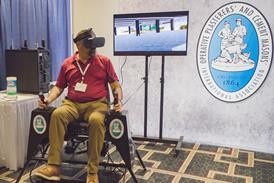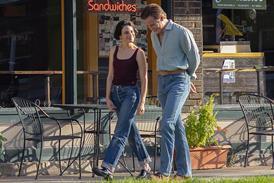A small, unpolished but involving drama of jealousy and social status, Shelter offers an interesting twist on the theme of the stranger who enters a family unit and exposes its faultlines. The unit in this case is a lesbian couple, and the stranger is Anis, an underage Moroccan illegal immigrant who stows away in their car when they return from a holiday in Tunisia.
Though it's nothing to look at, Shelter builds three interesting characters and takes the story in an intriguing direction. And the authentic, subdued performance of young non-professional lead Mounir Ouadi helps to give the film an edge of documentary reality.
Its lack of cinematic sheen, though, will restrict Shelter's box-office chances, and it will need more critical buzz to travel much beyond the more resilient end of the arthouse circuit. When a sales agent finally comes on board, Shelter may clock up a few overseas sales, but festival action - including specialist gay and lesbian fests - looks to be a more likely distribution model.
Maria de Medeiros and Antonia Liskova play Anna and Mara, two lovers whose passionate, tense relationship threatens to fracture when the ostensibly sweet and charitable Anna takes in the clandestine stowaway who used the boot of the couple's car as his ticket to Europe.
It's Mara who at first appears to be the problem: uptight and conflicted, she has problems with anger management - something that is put into context when we discover that she has an ailing father in the hospital and, more importantly, that she is a production-line worker at the shoe factory owned by Anna's brother Salvio (Vitaliano Trevisan, the actor-screenwriter last seen in Matteo Garrone's First Love).
All around is the bleak, flat industrial factoryscape between Venice and Udine: this is a kind of place that celebrates its furniture industry by putting the world's largest chair in the middle of a roundabout.
Anis, meanwhile, is taken on by Salvio as a warehouse hand. At first his rejection of Anna and Mara's girl-on-girl rapport seems to stem from blind cultural prejudice (he believes what all women really need is to get married and have kids), but we soon realise that he is an emotionally perceptive young lad who manages, through his rudimentary Italian, to convey some home truths about his hosts.
There are a few nice visual touches - like the long lenses which flatten workers against machinery in the factory scenes - but there's also a dull TV quality to some of the camerawork.
The script (co-written by Heidrun Schleef, whose past projects include The Son's Room) is good at pacing the switchbacks of the power plays between the three characters, and the transformation of Good Samaritan Anna into something harder and more cynical is entirely believable - thanks also to De Medeiros' measured performance.
It will be less easy for Italian audiences to accept the Portuguese actress' noticeable accent when she speaks Italian, for which no explanation is provided (as Salvio's sister, Anna should speak with his north-eastern Italian lilt).
Slovakian actress Liskova has been in Italy long enough not to have this problem, and her Mara crackles with pent-up anger and sexual passion.
Production company/backers
Intelfilm
Adesif Productions
Producer
Mario Mazzarotto
Screenplay
Marco Simon Puccioni
Monica Rametta
Hiedrun Schleef
Cinematography
Tarek Ben Abdallah
Production design
Ernita Frigato
Editor
Roberto Missiroli
Music
Cristiano Fracaro
Main cast
Maria de Medeiros
Antonia Liskova
Mounir Ouadi
Vitaliano Trevisan

















No comments yet